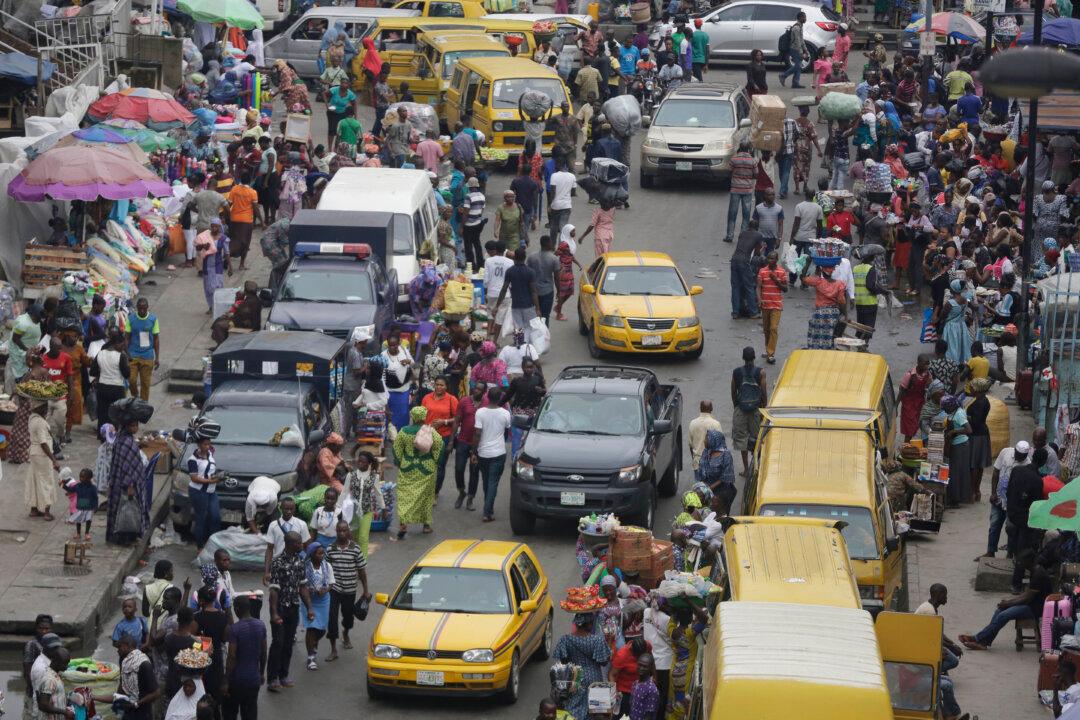LAGOS, Nigeria—Africa’s largest city is closing dozens of mosques, churches and nightclubs in a bid to reduce noise for its 20 million residents long used to lusty hymn-singing, honking horns and boom boxes that rattle the foundations of homes.
The state government of Lagos is on a mission to make the seaside city free of noise pollution by 2020.

A Muslim man attaches a megaphone in the street during Eid prayers in Lagos, Nigeria, on July 6, 2016. AP Photo/Sunday Alamba





